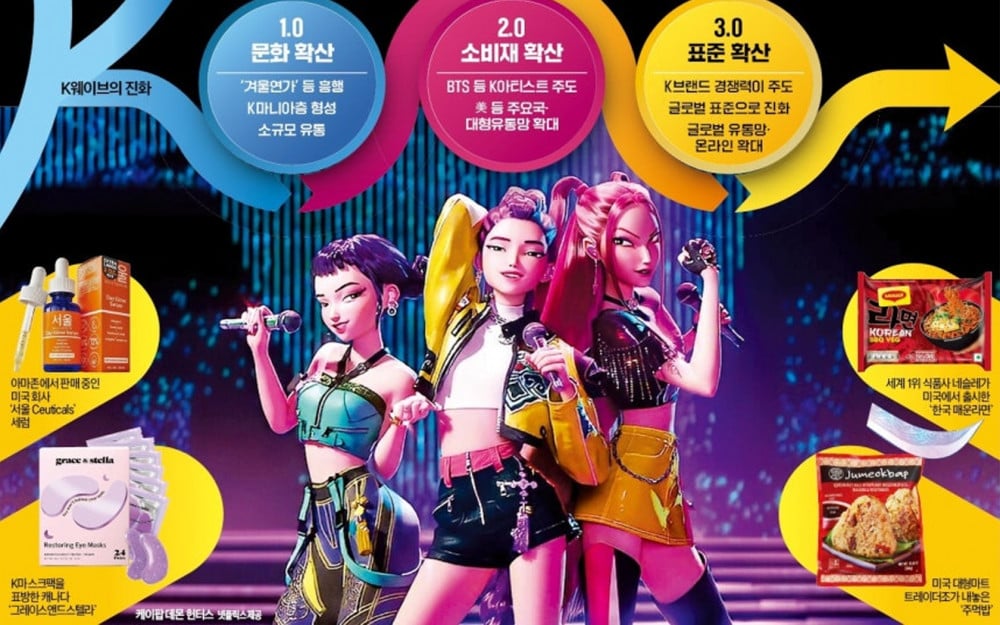K-Pop Demon Hunters sparks controversy after its OST “Golden” tops the U.S. Billboard HOT 100 chart.
The hit Netflix animation, produced by Sony Pictures (a U.S. subsidiary of Japan’s Sony) and distributed in the U.S., features Korean-themed content but pockets the profits overseas. Its music was produced by Republic Records under Universal Music Group in the U.S. Industry experts estimate the IP value of the franchise at over 1 trillion KRW (about 722.1 million USD).
The situation highlights the shift as foreign companies cash in on the global K-wave, sidelining Korean firms.
An insider said:
“‘K-Pop Demon Hunters’ broke the stereotype that K-content must be made by a Korean director with Korean actors to be considered authentic K-content.
As long as there is capital, anyone, anywhere in the world can now create K-content.“
The controversy deepens as domestic entertainment insiders worry the Korean industry won’t benefit despite the global success.
A Korean entertainment official warned:
“If K-pop content doesn’t have to be made by Korean companies, even if it goes viral globally, the domestic industry may not enjoy the actual benefits.“
The K-wave 3.0 era is here. Global companies are flooding the market with Korean-inspired products.
U.S. chains like Panda Express added Samyang Buldak sauce to their menu. Trader Joe’s sold out of Korean-style frozen gimbap. Walmart launched K-pop mobile pop-up stores. L’Oréal pushes K-beauty styled skincare.
Nestlé’s Maggi even slapped “ramyun” in Hangul on its U.S. Korean Spicy Ramyun packaging.
TikTok influencer Mikayla Nogueira joined the beauty game with a brand focused on “glass skin,” a K-beauty standard. American brands like Seoul Ceuticals and Seoul Mamas ride the K-beauty wave.
Despite this, Korean companies hold competitive edges thanks to years of R&D and innovation in a tough home market.
Lee Young Ae, consumer science professor at Incheon National University, underscored:
“The fact that global companies are continuously launching K-wave-related products means its influence in the global market has grown significantly. Korean companies must strengthen their competitiveness in content, products, and marketing to keep up, while the government should develop a comprehensive strategy that includes IP protection.“
The Korean entertainment industry is watching closely as the long-held notion of exclusive Korean ownership of K-culture fades.
This shift isn’t just in entertainment. Korean food and beauty markets are now global battlegrounds.
The K-wave just got bigger—but Korea might not be the biggest winner anymore.




